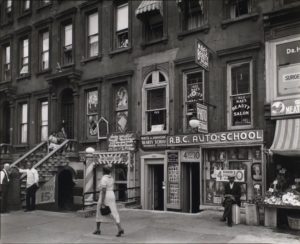Data from the Foley Longitudinal Survey, an ongoing study of personality and well-being outcomes among older adults, provides new opportunities to better understand how older adult think about “community”. How do we think about community — in terms of people, places and institutions — and how do these ideas differ from definitions in the academic literature?
DATA From CH+SE Community Narratives Study.
“People will look at you in your eye when you pass them at, at any time of day and say good morning, good afternoon, good evening. Strangers stop strangers and just start talking on the street about the beauty of the area. Its our community.”
“I really have the lack of feeling of belonging to a community. I feel like I don’t have many friends. I don’t have a lot in common with the people that live around me. People have moved on. People have kind of changed. I’ve probably changed. And that’s one thing that I really kind of lack in living around here now is a sense of community.”
“Ironically I think a kind of a combination of certain things. And I think mostly driven by social media/technology. I now think of it as much more amorphous and less geographical, less physicality of it.”




